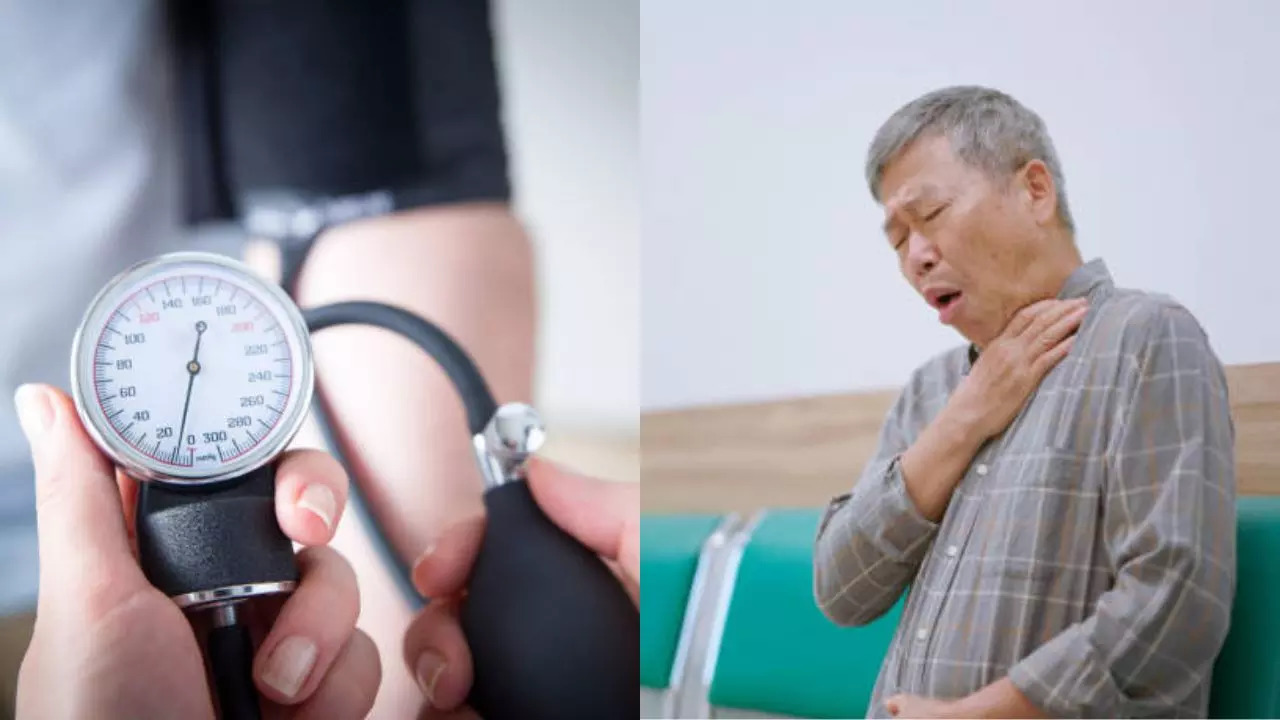-
news
-
Health
Study shows high blood pressure can reduce your ability to breathe
A recent study conducted by researchers at the Federal University of Sao Paulo, Brazil, and published in the journal Advances in Respiratory Medicine found that high blood pressure can impair one’s ability to breathe. However, being physically active can help improve respiratory muscle function. Read on to learn more about the study.

High blood pressure can reduce your ability to breathe
Photo: iStock
A new study has revealed that high blood pressure It can impair one’s ability to breathe by constricting the airways in the respiratory system, causing increased resistance. The study was published in the journal Advances in Respiratory Medicine and was conducted by researchers at the Federal University of Sao Paulo, Brazil.
However, the study found that being physically active may help improve the functioning of respiratory muscles, resulting in better coordination between ventilation and blood flow in the lungs. Hypertension is a condition in which a person’s blood pressure is abnormally high. This condition is also known to cause thickening of the blood vessels and hardening of the arteries.
The researchers said something similar happens with the bronchi, which are branches of the main windpipe (trachea) in the respiratory system.
“This is very important because the more rigid the bronchi become, the more difficult it becomes for air to enter and leave the lungs over a long period of time,” said final author Rodolfo de Paula Vieira, visiting professor at the Federal University of São Paulo. This accelerated process of hardening of the bronchi makes it difficult for older people to breathe. Worse, it is a cycle: low oxygen saturation accelerates the aging process throughout the organism.
However, it was found that physical activity can partially protect against airway constriction due to increased blood pressure. The authors said, “We conclude that systemic arterial hypertension compromises lung function and mechanics in older adults and that a physically active lifestyle appears to partially exacerbate these vulnerabilities. Thus, adopting a physically active lifestyle may reduce hypertension-induced pulmonary changes in older adults.
Vieira said that although high blood pressure is known to impair lung function, the mechanisms involved are not yet clearly understood.
For the study, researchers assessed air resistance as well as respiratory function of more than 700 men and women aged 60 or older, with or without high blood pressure. Muscle strength was assessed by observing hand grip, while respiratory muscle strength was assessed by measuring air pressure as participants inhaled and exhaled.
They also answered questionnaires regarding their physical activity habits and quality of life. Vieira said the findings highlighted the need to look at lung function in patients with high blood pressure.
“Our findings suggest that physicians should refer patients with hypertension to a specialist for testing to assess lung function and mechanics, especially older patients,” Vieira said.
Although changes in lung function are expected with age, the study showed that physical exercise may partially protect the lungs from the effects of high blood pressure, the researchers said. Therefore, older patients “should be given guidance on the importance of an active lifestyle to avoid loss of lung function due to hypertension,” Vieira said.
(With inputs from PTI)
Get the latest news live on Times Now with breaking news and top headlines from health and around the world.


